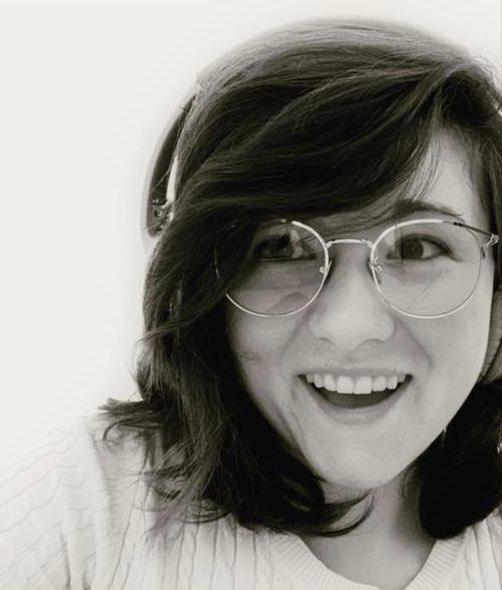We Need to Talk About Kevin
4.3
(1.1K)
Lionel Shriver
That neither nature nor nurture bears exclusive responsibility for a child's character is self-evident. But generalizations about genes are likely to provide cold comfort if it's your own child who just opened fire on his feellow algebra students and whose class photograph—with its unseemly grin—is shown on the evening news coast-to-coast. If the question of who's to blame for teenage atrocity intrigues news-watching voyeurs, it tortures our narrator, Eva Khatchadourian. Two years before the opening of the novel, her son, Kevin, murdered seven of his fellow high school students, a cafeteria worker, and the much-beloved teacher who had tried to befriend him. Because his sixteenth birthday arrived two days after the killings, he received a lenient sentence and is currently in a prison for young offenders in upstate New York. In relating the story of Kevin's upbringing, Eva addresses her estranged husband, Frank, through a series of startingly direct letters. Fearing that her own shortcomings may have shaped what her son became, she confesses to a deep, long-standing ambivalence about both motherhood in general—and Kevin in particular. How much is her fault? We Need To Talk About Kevin offers no at explanations for why so many white, well-to-do adolescents—whether in Pearl, Paducah, Springfield, or Littleton—have gone nihilistically off the rails while growing up in the most prosperous country in history. Instead, Lionel Shriver tells a compelling, absorbing, and resonant story with an explosive, haunting ending. She considers motherhood, marriage, family, career—while framing these horrifying tableaus of teenage carnage as metaphors for the larger tragedy of a country where everything works, nobody starves, and anything can be bought but a sense of purpose.
Psychology
AD
More Details:
Author
Pages
Publisher
Published Date
Community ReviewsSee all
"We Need to Talk About Kevin brings out all the feelings - so I have very mixed feelings on this book.<br/><br/>I understand why WNTTAK is important. Sometimes women who don't particularly want children have them anyway, and this book is one of the worst-case scenarios of what could happen. If you're thinking about having kids, knowing that this book is a possibility is a good thing to think about. I do not want children at all, so this book just encouraged me to continue with my current life plan (#notamom). <br/><br/>The suspense and dread build nicely at some points. However, the good parts are broken up with Eva's pretentious stream-of-consciousness storytelling, and 400 pages was entirely too long for this. Young Kevin is basically Baby Voldemort/Tom Riddle, and does a lot of disturbing stuff. There are a lot of interesting things in this book, but it's just tough to get to those parts. An unnecessary amount of the book is devoted to complaining about Americans and the people around her - I think we got the point fairly early on, and it was difficult to get through pages and pages of this after we understood how she felt. Shriver is skilled at writing ennui - it permeates this book. <br/><br/>I read this book with a friend, and we guessed the ending about halfway through the book. I feel like it could have been a huge reveal, but so many things in the book were "off", and I thought it was way too obvious. I know Shriver isn't a suspense writer, but I wish it would have been covered up a little bit more. <br/><br/>If this makes sense, this book is 5⭐ in theory - the concept is amazing. However the execution was a 2-3⭐ for me. Shriver's writing is gorgeous, but too much of a good thing was overwhelming and not fun in the end. I think this book would have been a lot more impactful for me if it was about half the size. I give this book 3.5⭐."
"A disturbing, keep you up at night read. I read We Need to Talk About Kevin several years ago and it has stuck with me ever since. I don’t know that I will ever read it again, it is intense, and some books just stay with you forever after the first time. "
T I
Tiffany Isnard
"The writing in this book was absolutely amazing. I am incredibly impressed with the authors detailed descriptions, comparison, anaylsis, and explanations of even the most mundane and seemingly meaningless events. The story was interesting and complex and a very unique perspective. Everything built up nicely to the end which was pretty unpredictable. I was a bit overwhelmed by the density of this book and it certainly took a lot of effort to get through, not because it was bad or slow, but just because it was a lot to take in, especially with the depth of the writing. I hesitate to say I enjoyed the book just because who enjoys a book that's this heavy in its content, but it really was a very good book. Definitely one I'd love to discuss more, but not one I'd casually or lightly recommend. <br/><br/><br/><br/><br/>Content: a good amount of f-bombs, sex, crude descriptions, and detailed violence"
"This book is awful.<br/><br/>The subject matter is awful. The reading experience itself was so awful that multiple times I had to put the book down in horror to take deep breaths or to stop myself from being physically sick or to stop the headache blossoming behind my eyes. Multiple times I had to talk myself into picking it back up. Sometimes I had to stop just to think or because it was too emotionally overwhelming. Now that I am finally done, I still feel awful.<br/><br/>And that is why I rated it 5 stars. <br/><br/>This is no easy read folks. I am a clinical psychologist, and it is basically reading a trauma narrative, presented in the form of letters from a mother to her ex husband, starting at the beginning and ending with her teenaged son being incarcerated for mass murder committed at his school.<br/><br/>There are references to other mass shootings throughout the book, which made it especially difficult for me. I am the same age as the teenage perpetrator, from this generation, and the 1997 shooting at Heath High School in Paducah KY, happened the next town over from me, where I had friends and marching band rivals. I attended their 2001 prom where the victims and shooter would have been seniors, like me. So it is still a traumatic subject for me and the others in my area. People in my town speak with more horror about "Heath" than they do about 9/11, because we really did not believe it would ever happen in small town KY.<br/><br/>This book is awfully realistic. It takes its time. It gets worse as it goes on. But it is powerful. It arouses strong emotions and thoughts in a way I am not sure any other book ever has. I definitely do not remember a book where I have had to stop to *breathe* before! That is good writing. But be warned, it is awful.<br/><br/>"
R T
Rebekah Travis
"When I started reading this book, I appreciated the prose: it's been a long time since I've had to reach for the dictionary so much; but by the time I hit my first stopping point at 20ish percent, I was over it—it's pretentious and I found it unbelievable that anyone actually speaks like this. And who includes this much detail when recounting things to someone who was there? <br/><br/>I've long been interested in abnormal psych, and I've long wondered about what's experienced by the parent of a mass murderer. From that perspective, the story is fascinating. <spoiler>But it's also infuriating! It's not like Kevin just snapped one fine day. There were signs his <i>entire life</i> that had been excused, overlooked, or ignored. Argh!</spoiler> But there isn't a single likeable character, which makes getting through it tedious. <spoiler>Except for the murdered teacher. She was pretty great.</spoiler> There's something particularly grating about Eva, especially in the beginning. It felt like a male voice speaking through her—odd, since the author is a woman.<br/><br/>I really wanted to like this. But it just thinks it's so much more than it is. It didn't help that I wanted to throttle the entire Khatchadourian family."
Similar Books
3.9
4
3.9
3.4
4.1
3.7
4.1
4
3.5
3.9
4
4.2
4.1
4
4.2
4.2
3.9
3.5
3.3



